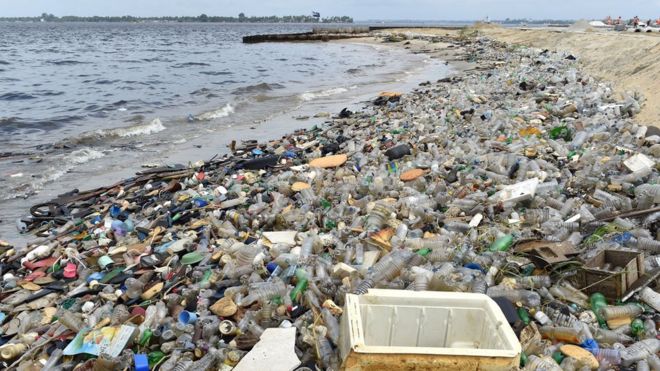@Oxymandias
ok, since 'm bored and it seems you're running late on the second half, 'll respond to this half now.

Cant let you have the last word.


GMOs are completely different situations from vertical farms. Furthermore, GMOs were first used by the government and created by government funding of universities. Without government involvement, the market may not even have utilized GMOs.
Not really, they're in different fields of science and technology, sure, but they're both solutions to the same problem.
Hong Kong is not a planned city by any means. In fact, one of the core ideology that permeated Hong Kong's government was the idea of having the least amount of government involvement in the economy. The point was to have as little planning as possible and let the market do whatever it wants. What you have described seems to be regulations and not a planned city.
Their policies and laws says otherwise.
Much of Hong Kong's economy is highly affected by government policies regarding development and growth.
I never said anything about changing the political system.
You said political change, not policy change.
The market doesn't decide if people want to live there or not. The market follows society, not the other way around.
True, I doubt I said otherwise.
The point this way in response to was regarding Chinese ghost cities, and the fact their purpose is not specifically about people living there but rather to buff up the GDP and growth.
Furthermore, the market isn't a homogeneous entity that decides anything. The market follows demand. If people want a city, then the market will build a city.
Its a two way street, the market also has corporations that uses propaganda (i.e marketing and advertising) to affect people's opinions.
And the government can institute policies to incentivise corporations to go a certain way, and themselves leading the market, and thus the people to follow suit.
The issue with market lead decisions is that the market isn't organized and is competitive by nature. The only way for the market to be organized if it is run under a monopoly but a monopoly doesn't need to follow demand. This means that cities must be built in coordination with society and the state. The state must incentivize individual people and communities to move or establish cities. Then the market will adapt to the demands of the individual people and communities that move to the cities.
Exactly, and this is what planning development and expansion in cities looks like.
Based on what you're telling me about these mega cities, they don't seem to be planned. This seems to be connecting various cities, not planning a new one.
Its planning for existing cities to merge and create a much larger mega city.
And yes, it is planned.
That's kind of what I was talking about but I also included social commitment as well. We need society to be committed to the idea of the space elevator, not just pay it lip service. We need less people talking about how good something could be and more people making that something. Also I'm an advocate for Modern Monetary Theory so taxation is irrelevant to me although that is a completely different discussion.
And if an idea that the scientific community of a certain field agrees its helpful and would work and it was publicized and "sold" to the people, then you can generate that commitment.
For MMT, that is indeed a different topic, but as a quick note on it;
Even if we were to take it as the norm, which isn't true in all countries since not all countries have their own currency nor is global trade done in local currencies, but if it did turn that way in the future hopefully, taxes are still needed.
Even if taxes aren't used to pay for things, they're still relevant in regulating the market.
Taking the US for example;
The US does have MMT applying to it, however the consequences of applying the same logic which is that taxes aren't all that relevant so it should go down for the rich turned the US into an oligarchy as rich people kept getting richer and richer to a point where they became way too powerful and influential, and to limit their power and go back to a more democratic system the US either has to print massive amounts of money to inflate the currency and weaken the oligarchs, or it would have to start taking their money by excessive taxes which wont happen legally since they gained too much political power to prevent it, and so a revolution is needed to rebalance things and restore democratic order.
You see, all that could've been avoided if income taxes remained high for rich people. But they applied the logic of "taxes are no longer relevant to cover spending" and so they reached this place.
That's kind of dangerous since it gives that corporation leverage over a significant portion of society. This means that corporation has hold over the government. I think it's better if the government hires a corporation to build the vertical farms and then give the land on those farms to local farmers or, more preferably, botanists.
Such facilities cant be ran by regular farmers, so the second options is not available.
Either the government does it as part of the public sector, or encourage multiple corporations do it to maintain competition.
There's probably loads of other even better ideas we simply haven't thought of yet. We're going in the right direction but we need to widen our options and thus, opportunities.
Actually, to be honest, this is one of the biggest reasons why I want sanctions. It gets people creative and makes the government more willing to listen to unorthodox or weird but genius ideas since the government desperately wants to keep the population happy.
Agreed
Alright, let's settle exactly what a planned city is. A planned city is any community that was carefully planned from its inception and is typically constructed on previously undeveloped land. Based on this point what you are describing can be a planned city. However, not all cities are planned. Most of them are emergent. They result from a certain set of circumstances (such as Shanghai being a trading hub or Baghdad being the center of the government) and emerge as well-known cities. Paris was originally like this as was London, Madrid, Monaco, etc.
Disagree.
This is not the commonly used definition of city planning.
This is how certain areas or hubs are planned as part of larger cities, but not entire cities.
Wait are you agreeing with me or disagreeing here?
Not sure, it was 2 days ago and I forgot what this point was about. LoL

Part 2 is coming up. I don't have the time to finish addressing your points now.
Will be waiting for it.








 )
)












 - By Tainari88
- By Tainari88